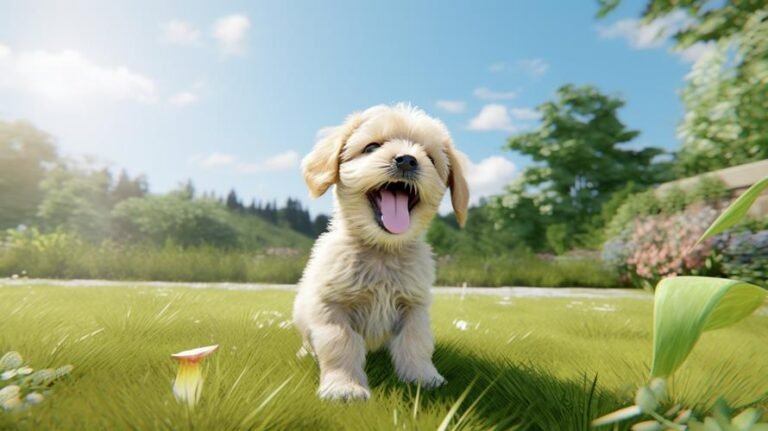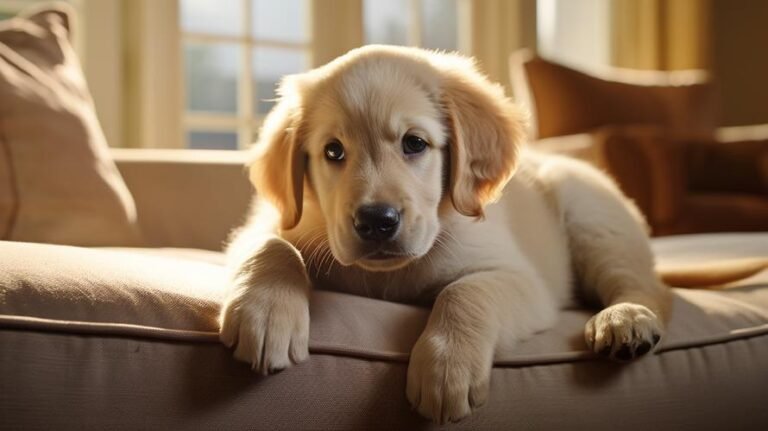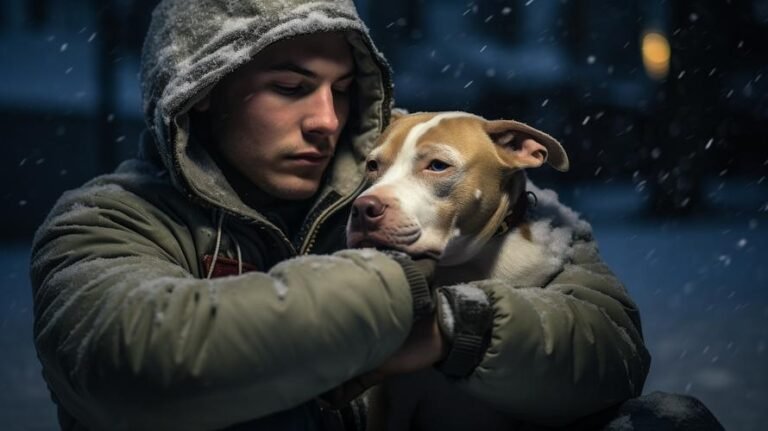Did you know that you can start house training your puppy as soon as they are just three weeks old? Yes, it may sound surprising, but according to renowned animal behaviorist and dog trainer, Dr. Sophia Yin, puppies have the ability to learn simple commands, as well as develop some bladder control at this surprisingly early age.
On an exciting note, if you’ve just welcomed a furry bundle of joy into your home, and wondering when you should start house training, allow me to say: “Congratulations! You actually can start right away!” This article will be your ultimate guide to navigating this crucial phase of puppy parenthood. Let’s take a remarkable journey together to explore the wonders and quirks of puppy house training, addressing thorny questions and providing useful tips and advice along the way.
HOUSE TRAINING THE TINY TOT
A puppy’s ability to learn at a young age makes early house training not just possible, but immensely beneficial. For puppies, their world revolves around play, sleep, eat, and… yes, you guessed it right, ‘eliminate’. Life is simply a repeating cycle of these four activities. Training them about appropriate elimination habits early on is vital for avoiding messy accidents in your home and more importantly, for establishing a long-term, healthy routine for your young pet.
THE SCIENCE OF PUPPY TRAINING
Like young human children, puppies are also born with undeveloped brains. This means they’re not immediately capable of controlling their bladder and bowel movements. They start gaining control at around 8-12 weeks of age, acquiring the ability to ‘hold it in’ when they have the urge to go.
These biological limitations play a significant role in shaping your house training strategy. Here’s the golden rule: Your puppy’s age in months is equivalent to the number of hours they can hold their bladder. In other words, a 2-month-old puppy can maybe hold their bladder for 2 hours, a 3-month-old might manage 3 hours, and so on.
This might sound a bit intimidating, especially if you are away from home for long hours. However, understanding this concept can actually help you develop a consistent schedule and set realistic expectations for your young pup, which are key elements to successful house training.
TRAINING STRATEGIES AND TIPS
Understanding your puppy’s biological limitations is crucial, but it’s only part of the picture. The other half lies in using right training methods tailored to your puppy’s age and needs. Here are some tips to get you started.
1. Understand the Signs: Puppies give signs when they need to go. They’ll usually start sniffing, circling, scratching at the door, or even showing signs of restlessness. By learning to read these signs, you can proactively respond and avoid accidents.
2. Set a Schedule: Puppies thrive on routine. Schedule feeding times and stick to them. As puppies usually need to eliminate 5-30 minutes after eating, promptly taking them out after each meal can help encourage good habits.
3. Choose a Potty Spot: Pick a consistent spot outside where it’s safe and convenient, for your puppy to eliminate. Your pup will start to associate this area with doing their business, making the house training process smoother and faster.
4. Positive Reinforcement: Always be ready to offer excitement, praises, and treats when your puppy eliminates in the right place. This positive reinforcement will help reinforce good behavior.
5. Early Morning and Late Night Trips: Another useful practice is taking your puppy out first thing in the morning and last thing at night. Puppies also often need to go during the night, so setting your alarm for a middle-of-the-night bathroom break can help avoid any messes.
HOUSE TRAINING, PATIENCE, AND CONSISTENCY
Remember, house training a puppy doesn’t happen overnight. There will be mess-ups and accidents, frustrating days, and testing weeks. However, by understanding your puppy’s biology, implementing solid training strategies, and keeping your patience, you will start seeing signs of progress. And that’s the joy of it all — watching your little friend grow and learn, and finding joy in the small victories of house training.
In addition, do not worry if it seems like your puppy isn’t catching on. Like humans, all puppies learn at their own pace. Some might need just a few weeks to master the skill while others might need months. The key is to give them time, be consistent, and celebrate their successes, no matter how small they seem.
House training your puppy is more than just avoiding accidents in the house. It’s a significant step in building healthy habits and a lasting bond with your new furry family member. As they say, good things take time. Hang in there and enjoy this journey with your pup. Before you know it, the days of puppy potty training will just be a fond, albeit slightly messy, memory!
In conclusion, starting to house train your puppy early does not just save your rugs and floors; it lays the groundwork for a lifetime of good habits and a harmonious relationship with your canine companion. So, when someone asks you, “What age should you house train a puppy?” You’ll know to confidently answer, “The earlier, the better.”



